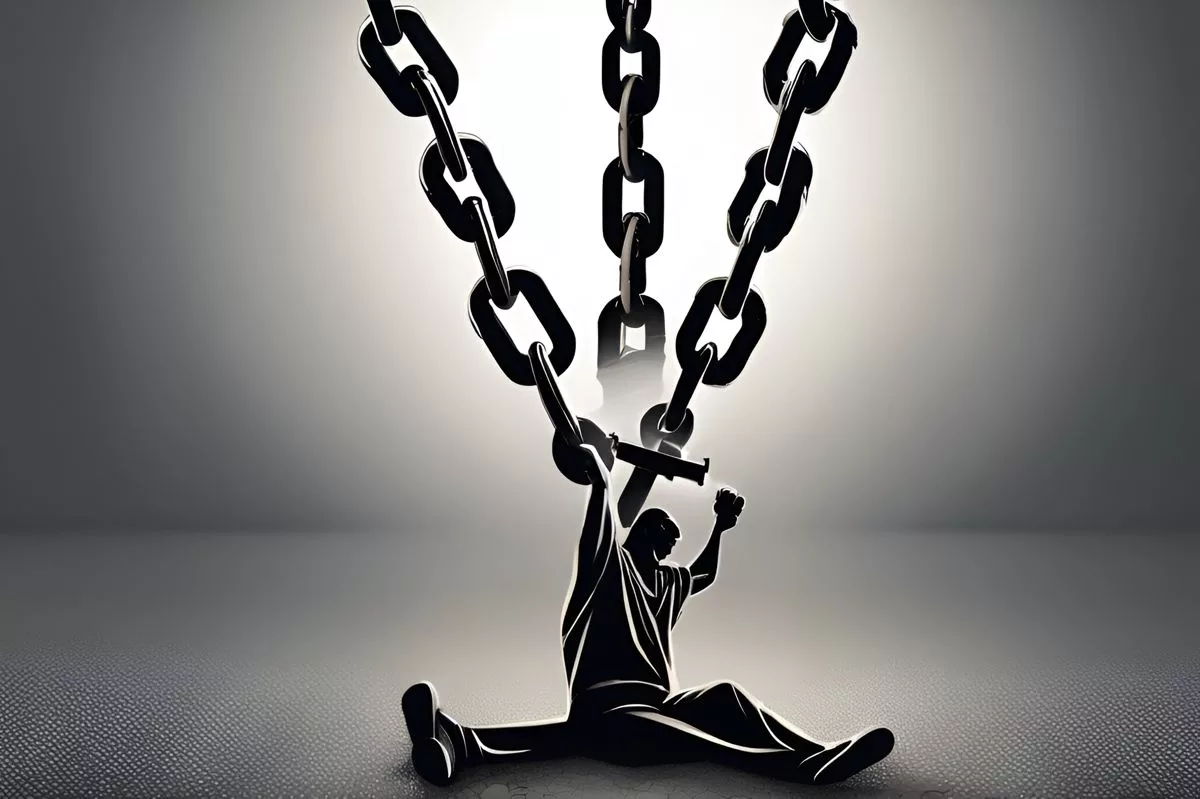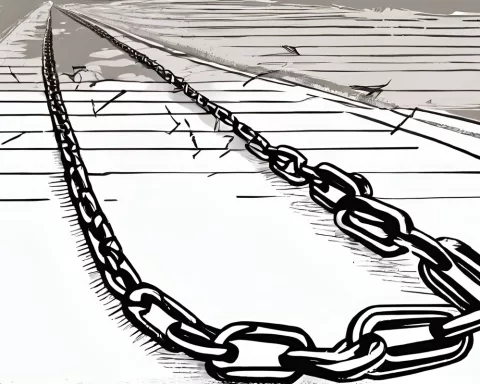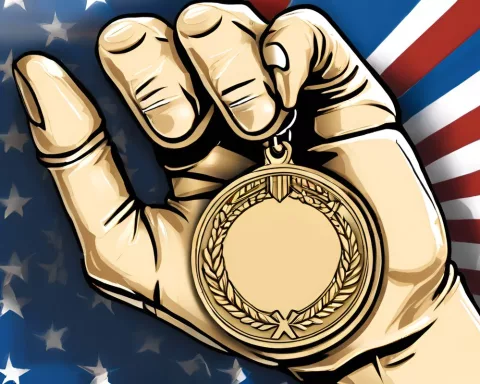South Africa’s Department of Sport, Arts and Culture (DSAC) is showing unwavering support for Caster Mokgadi Semenya as she fights for her right to compete without reducing her testosterone levels. The department is collaborating with stakeholders to strengthen Semenya’s legal fight and is hopeful that the upcoming ruling will uphold justice, inclusivity, and diversity. DSAC has also launched an extensive public awareness campaign to nurture a sporting culture that celebrates inclusivity and respect. The department aims to promote the right to compete on an equal footing without prejudice and discrimination.
DSAC Solidarity and Support for Semenya
South Africa’s Department of Sport, Arts and Culture (DSAC) has expressed unwavering backing for Caster Mokgadi Semenya, and pledges to champion fairness and parity within the scope of sports. The department collaborates with stakeholders to strengthen Semenya’s legal fight, and is hopeful that the Grand Chamber’s ruling will uphold justice, inclusivity, and diversity – the pillars of the South African sporting ethos. DSAC also launched an extensive public awareness campaign to nurture a sporting culture that celebrates inclusivity and respect.
DSAC Solidarity and Support for Semenya
In an assertive show of unity, South Africa’s Department of Sport, Arts and Culture (DSAC), led by interim director-general Cynthia Khumalo, has expressed unwavering backing for renowned sportsperson, Caster Mokgadi Semenya. As Semenya courageously strides towards the Grand Chamber of the European Court of Human Rights in France, DSAC firmly pledges their support. The court is prepared to revisit the contentious rule that mandates the double Olympic winner to reduce her testosterone levels to participate.
DSAC’s pledge to champion fairness and parity within the scope of sports endures. As this year signifies the third decade of democracy in South Africa, the department emphasizes the notion that every athlete, regardless of their gender or physical attributes, should possess the absolute right to participate without encountering prejudiced obstacles.
Anticipation of a Favorable Verdict and Collaborative Efforts
The department, along with the entire nation, eagerly anticipates a verdict that will preserve these tenets and yield a positive result for Semenya and others grappling with similar situations. In this joint endeavour, DSAC collaborates with the Commission for Gender Equality (CGE), Norton Rose Fulbright (NRF), Probono.org, and other stakeholders to strengthen Semenya’s legal fight.
The upcoming hearing, slated for May 15, has put Semenya’s unyielding fight against gender-based discrimination in the spotlight. The department has exposed the substantial challenges sparked by the 2019 regulations of World Athletics, specifically affecting athletes with Differences in Sex Development (DSD).
Rallying for Justice and Upholding Human Rights
Echoing the sentiments of DSAC, the CGE has also urged support for Semenya’s pursuit of justice, recognizing the potential widespread influence it may have on athletes worldwide. Advocate Nthabiseng Sepanya-Mogale, Chairperson of the CGE, underscored the importance of the Grand Chamber’s ruling, portraying it as a crucial determinant in shaping public human rights law over private legal affairs.
Furthermore, DSAC brought to light the violations identified by the court in the Switzerland versus Caster Mokgadi Semenya case, which includes discrimination, refusal of effective remedies, and infringements on private life. In its ongoing advocacy, the government’s unwavering commitment to equitable solutions remains a firm stance. DSAC is hopeful that the Grand Chamber’s ruling will uphold justice, inclusivity, and diversity – the pillars of the South African sporting ethos.
Cultivating an Inclusive Sporting Culture
Parallel to its legal efforts, DSAC has launched an extensive public awareness campaign to rally support for Semenya’s cause. Through the utilization of media channels, organization of community events, and initiation of educational programs, the department aims to foster a deeper comprehension of the issues involved. The objective is to nurture a sporting culture that celebrates inclusivity and respect.
As the case continues, DSAC reaffirms its determination to support Semenya and all athletes encountering similar ordeals, fervently promoting their right to compete on an equal footing, without prejudice and discrimination.
What is South Africa’s Department of Sport, Arts and Culture (DSAC) doing to support Caster Mokgadi Semenya?
DSAC is showing unwavering support for Caster Mokgadi Semenya as she fights for her right to compete without reducing her testosterone levels. The department is collaborating with stakeholders to strengthen her legal fight and is hopeful that the upcoming ruling will uphold justice, inclusivity, and diversity. DSAC has also launched an extensive public awareness campaign to nurture a sporting culture that celebrates inclusivity and respect.
What is the upcoming ruling that DSAC is hopeful for?
The upcoming ruling is from the Grand Chamber of the European Court of Human Rights in France. The court is prepared to revisit the contentious rule that mandates Caster Mokgadi Semenya to reduce her testosterone levels to participate.
Who is collaborating with DSAC to strengthen Semenya’s legal fight?
DSAC collaborates with the Commission for Gender Equality (CGE), Norton Rose Fulbright (NRF), Probono.org, and other stakeholders to strengthen Semenya’s legal fight.
What is DSAC’s stance on the right to participate in sports?
DSAC pledges to champion fairness and parity within the scope of sports. Every athlete, regardless of their gender or physical attributes, should possess the absolute right to participate without encountering prejudiced obstacles.
What is DSAC’s public awareness campaign about?
DSAC’s public awareness campaign aims to foster a deeper comprehension of the issues involved and to nurture a sporting culture that celebrates inclusivity and respect. The objective is to promote the right to compete on an equal footing without prejudice and discrimination.
What is the CGE’s stance on Semenya’s pursuit of justice?
The CGE has urged support for Semenya’s pursuit of justice, recognizing the potential widespread influence it may have on athletes worldwide. The Chairperson of the CGE emphasized the importance of the Grand Chamber’s ruling, portraying it as a crucial determinant in shaping public human rights law over private legal affairs.












